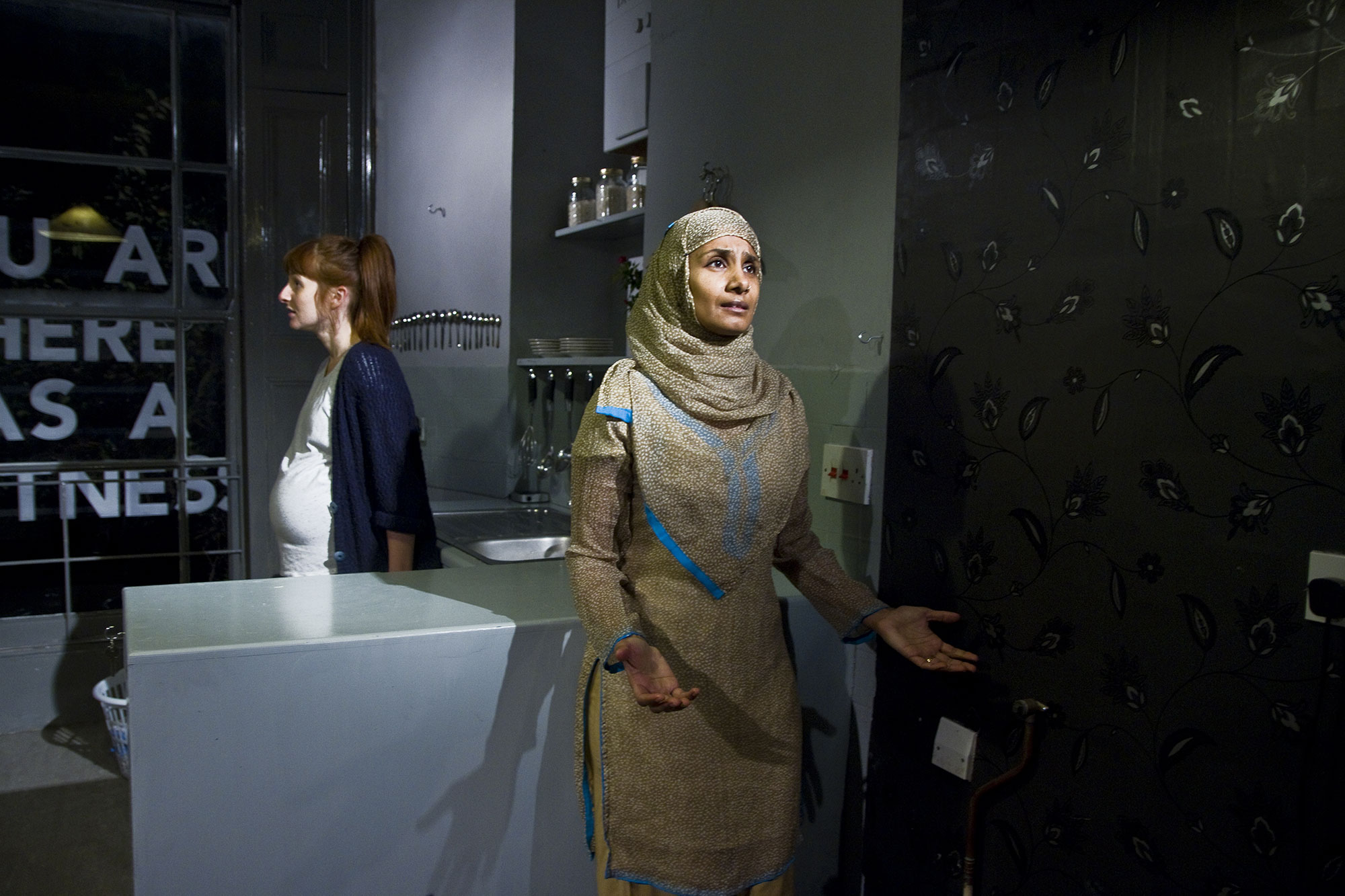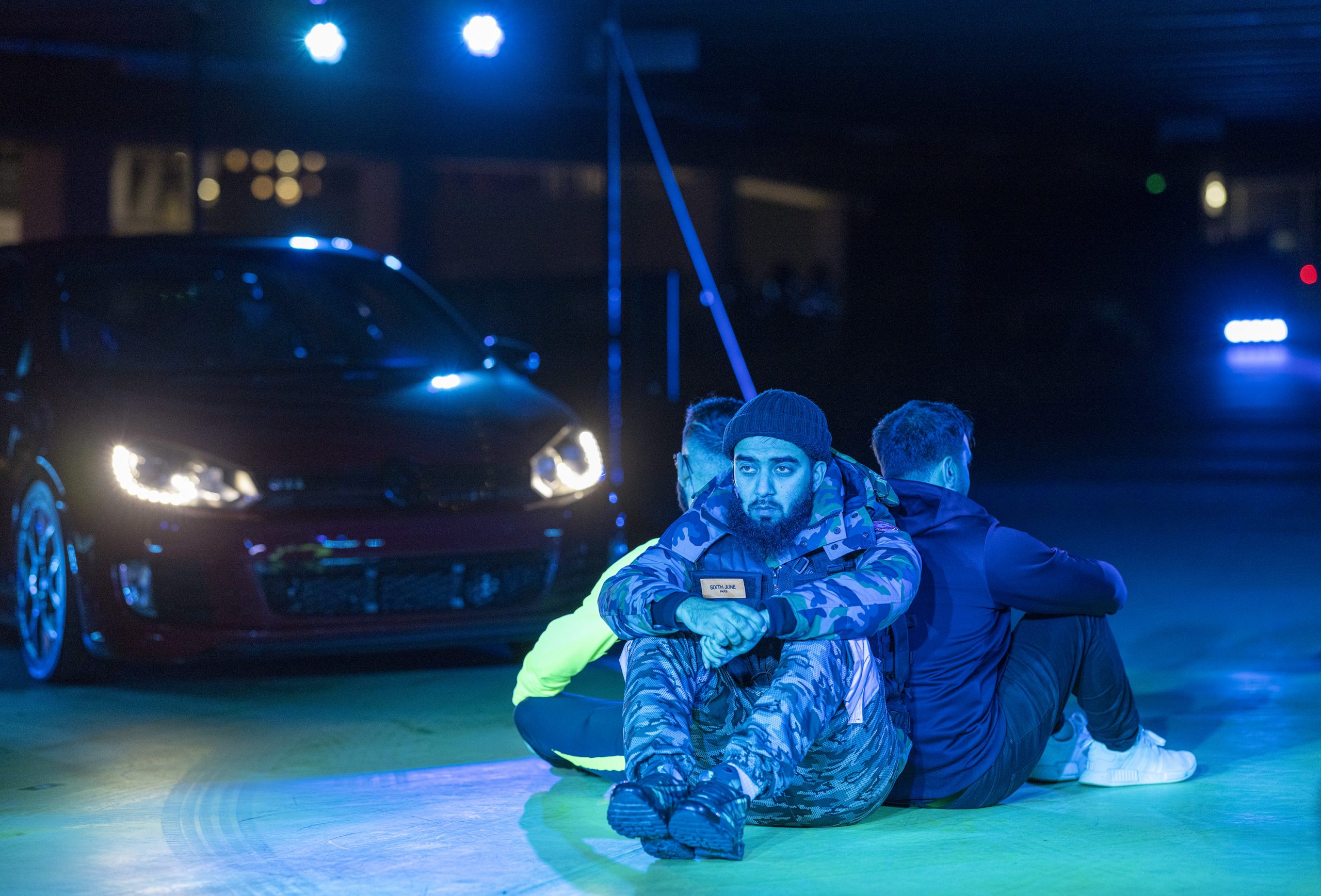Highlighting Radical Theatre Company Common Wealth
For the month of July, we are celebrating trailblazing women in the theatre. Last week, we explored the life of Sarah Bernhardt and her connection to the work of Shakespeare as the first woman in the role of Hamlet to have her performance captured on film. This week, we turn to the contemporary women-founded theatre company Common Wealth in the United Kingdom, headed by Evie Manning and Rhiannon White.
Theatre has always been used as an expression of key political and social concerns, speaking to the way things are in their current moment and the hope for change. Common Wealth was founded in 2008 with no funding, just access to spaces and networks of collaborators who were willing to share their time. Common Wealth believes that theatre is a vehicle for change and encourages accountability. During the past decade of productions from Common Wealth, the company has produced performances centering around contemporary issues such as Islamophobia, domestic violence, and mass unemployment. The work of Manning and White, as part of this company, is a reaction to the status quo.
However, Common Wealth was also founded with the idea that theatre makes people feel less alone and brings people closer to themselves. In a conversation with Atlas of the Future, White spoke of her working-class background in South Wales and how she grew up with theatre being inaccessible to her. The formation of Common Wealth with Manning, a dramatist from Bristol, came from the belief that everyone should have the right to share and experience culture. In an interview with The Guardian, they summarized the meaning behind the name of the company:
“Recently, we’ve been saying this: Common Wealth is two words. Common is what we’ve got in common. And common as being poor. And then wealth as in the riches that we’ve got through that shared experience.”
It is this idea of wealth through shared experience that is at the center of Common Wealth’s praxis. Manning and White stated that all their productions begin with interviews and meetings with the people who are really impacted by a social issue. From there, Common Wealth has an “open-door” policy for their rehearsals, allowing people to attend with the mindset that everyone has the potential to be a collaborator. In addition, the script they develop always has the possibility of edits to better inform the play by those who are impacted by the subject matter.
“The work we do has to come from the owners of the story, otherwise we’re just making it up and sensationalizing ideas and places and people.”
Another element that makes Common Wealth’s performance so engaging is the way the work is staged. All the work Common Wealth creates is site-specific, meaning that the work often takes place in nontraditional environments. The work Common Wealth has created has led them everywhere from local City Halls to old hospital buildings. With these sites, Common Wealth also makes it a practice to not include seating, rather having patrons move around the space and being an active part of the work itself.
For their work, Manning, White, and the collective company of Common Wealth have garnered awards and recognition – although they state that they never began the company seeking this attention. Their 2013 play Our Glass House (centered on the topic of domestic violence) was awarded the Amnesty Freedom of Expression Award. The following year, No Guts No Heart, No Glory, telling the story of young female Muslim boxers, was also shortlisted for the award. Common Wealth has also gained international attendees, with staging of their work not only across the United Kingdom, but in Finland and Australia.
In recent years, Common Wealth has also branched out to different forms of art. A recent experience called Peaceophobia was part car-rally, part performance piece that talked about Islamophobia in the UK. Due to the COVID-19 pandemic, some of the artistic projects that Common Wealth has produced in recent years have looked different than the physically intimate productions typical of the company. Us Here Now was a socially distanced photographic experience that challenged the narratives of those living in housing projects in Cardiff, where White grew up.
Most recently, Common Wealth has created spaces where people can come together to make art as a community. In July 2022, they launched Common Space, a community center that features two stages, exhibition space, workshop, rehearsal space. It also serves as the new home of the established Speakers Corner, a creative collective of women and girls who bring people together for positive action. Whatever shape the art Common Wealth takes, it will always be focused on bringing people together and shaping a world of good.
Visit Common Wealth’s website here to learn more.



